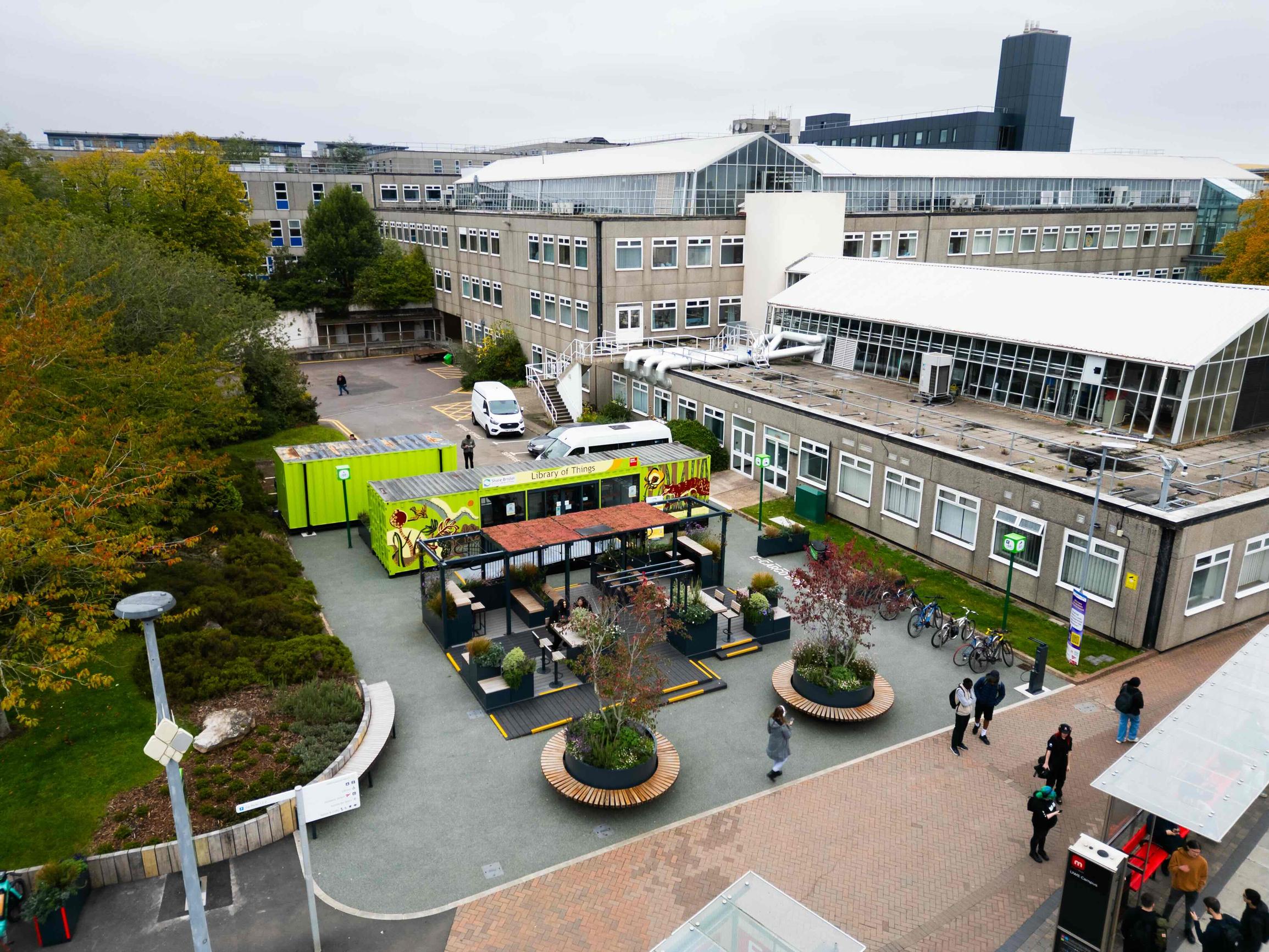

Effective collaboration between partners is essential if networks of mobility hubs are to be successfully delivered, attendees at the recent Landor Links Mobility Hubs conference in Bristol heard.
A network of ten mobility hubs has been developed in the Bristol area on a 12-month trial basis. The first of these opened at the University of the West of England’s Frenchay campus in Stoke Gifford in November 2024. Development of the hubs has been led by the West of England Mayoral Combined Authority, and funded out of the £24m Future Transport Zone allocation that the authority received from the DfT.
Amanda Edmondson, Mobility Hubs Project Manager at the Combined Authority, outlined to the conference the complexity of hub delivery. Stakeholders that had to be brought together included the combined authority, the relevant unitary authorities, landowners, community groups, consultancies, contractors, and local artists, meaning that partnership working was essential from the start.
“If you don’t own the land, building a relationship with the landowner is crucial,” she said. “Land ownership has to be clarified early to remove any sites with complexities. In some places it wasn’t clear who actually owned the site which restricted what could be delivered, and three of the proposed trial sites had to be dropped because of this issue.”
An additional challenge for the Combined Authority is that even though it is leading the development of the hubs, its powers are limited due to it not having transport responsibilities or owning any land.
The conference heard that the Bristol trial features three different types of hubs. These include corridor hubs, which are focussed on bus stops on routes with a high frequency service; campus hubs at destination points that attract high numbers of trips such as universities; and community hubs in local neighbourhood centres. One of the hubs also has the additional advantage of being sited next to Portway, an existing park and ride railway station.
Once the trial period for each of the hubs draws to a close, decisions on their longer-term future will be taken, based on monitoring and evaluation of their effectiveness. Some funding has already been allocated to create an extended maintenance fund for South Gloucestershire and Bristol City Councils to take the hubs on, although this will only last for three years and beyond this they will have to find new sources of funding to finance the hubs themselves.
A key feature of the hubs has been the consideration of their visual appeal. Meristem Design, a company that specialises in ‘urban greening’, has been responsible for designing and installing the hubs. A common feature is the use of modular design seating, with plants used to improve their attractiveness. Bristol-based artists have also been commissioned to create artworks to reflect the hub’s local identity, giving local communities the opportunity to shape their colour, look and feel.
Currently the hubs lack any car club vehicles, partly due to the lack of any revenue funding being available for them. Some commercial facilities are being developed though, with parcel lockers being introduced at some of the hubs.

TransportXtra is part of Landor LINKS
© 2026 TransportXtra | Landor LINKS Ltd | All Rights Reserved
Subscriptions, Magazines & Online Access Enquires
[Frequently Asked Questions]
Email: subs.ltt@landor.co.uk | Tel: +44 (0) 20 7091 7959
Shop & Accounts Enquires
Email: accounts@landor.co.uk | Tel: +44 (0) 20 7091 7855
Advertising Sales & Recruitment Enquires
Email: daniel@landor.co.uk | Tel: +44 (0) 20 7091 7861
Events & Conference Enquires
Email: conferences@landor.co.uk | Tel: +44 (0) 20 7091 7865
Press Releases & Editorial Enquires
Email: info@transportxtra.com | Tel: +44 (0) 20 7091 7875
Privacy Policy | Terms and Conditions | Advertise
Web design london by Brainiac Media 2020